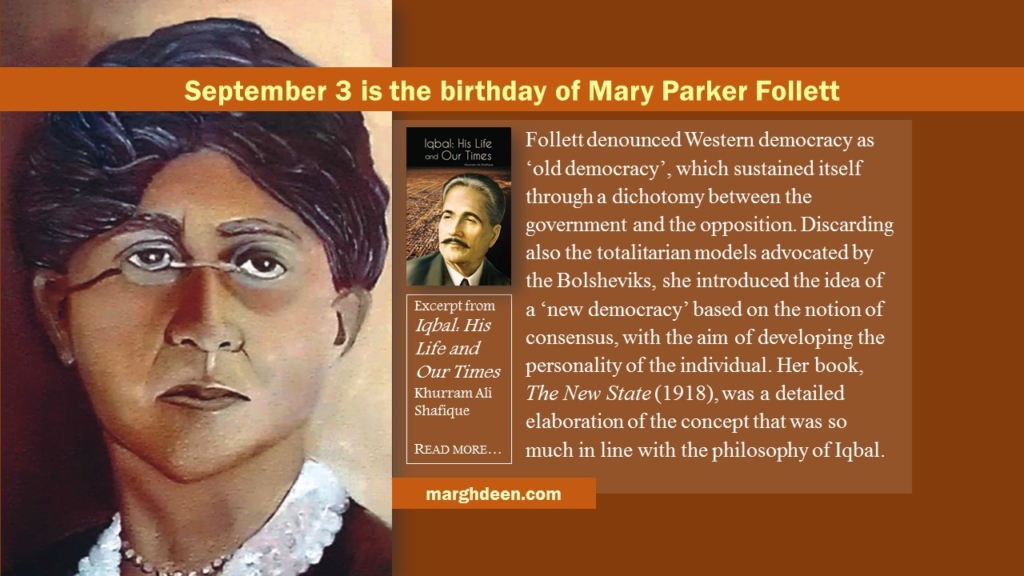In sync with the current of Iqbal’s thought was also the idea of ‘new democracy’, highlighted by such political thinkers as the American pioneer of management sciences, Mary Parker Follett and the great Bengali visionary Chittaranjan Das (C. R. Das).
Follett denounced Western democracy as ‘old democracy’, which sustained itself through a dichotomy between the government and the opposition. Discarding also the totalitarian models advocated by the Bolsheviks, she introduced the idea of a ‘new democracy’ based on the notion of consensus, with the aim of developing the personality of the individual. Her book, The New State (1918), was a detailed elaboration of the concept that was so much in line with the philosophy of Iqbal.
The Bengali visionary leader Das picked up the idea in his presidential address to the annual session of the Indian National Congress in Gaya on December 26, 1922, and cited excerpts from The New State. He modified them for developing a holistic model for India where:
- ideas should move upward from the grass root;
- communities should continue to evolve their own distinct characters, and yet strengthen the spiritual unity of India;
- India should actively seek the unity of the Muslim world as part of a broader vision for the unity of the entire Asia; and
- the ultimate aim of all political activity should be the development of a healthy personality in the individuals (See Freedom through Disobedience by C. R. Das).
A few days later, Iqbal wrote to a young Muslim journalist that Das had ‘presented the same spiritual principle in a political manner’ that Iqbal had presented in Secrets and Mysteries.
It is almost certain that Iqbal also familiarized himself with the work of Follett: a quotation used by her (‘When a man’s eye shall be single’; see Follett [1918], p.156) was translated by Iqbal into Persian in the dialogue of the Voice of Beauty (God) in Javid Nama (1932), signifying the same concept.

Just read the article. Thank you, sir.
Greetings,
What a nice post! I get the sense that many modern people know little about Mary Parker Follett, her work in management sciences, and her understandings about democracy. This post (and all of your other writings) is addressing this.
All good wishes,
robert